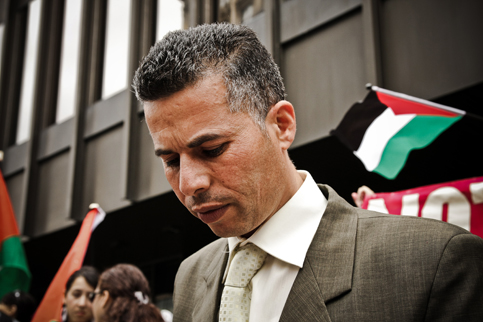Category: Press Releases
-
Mohammed Khatib, coordinator of West Bank Coordination Committee arrested
Popular Struggle Coordination Committee 28 January 2010 At a quarter to two AM tonight, Mohammed Khatib, his wife Lamia and their four young children were woken up by Israeli soldiers storming their home, which was surrounded by a large military force. Once inside the house, the soldiers arrested Khatib, conducted a quick search and left…
-
Journalist arrested at peaceful tree-planting action
Christian Peacemaker Team 23 January 2010 On 23 January, Israeli soldiers declared Palestinian land south of the Israeli settlement outpost Havot Ma’on (Hill 833) a closed military zone, then arrested a Palestinian journalist from Pal Media. The journalist was reporting on a demonstration organized by Palestinians from the village of At-Tuwani after the recent destruction…
-
CJPME: Canada to withdraw its funding to UNRWA
Canadians for Justice and Peace in the Middle East 21 January 2009 Last week, the government of Canada quietly announced it would discontinue its long-standing financial contributions to the United Nations Relief and Works Agency (UNRWA), and redirect the monies to strengthen the judicial system of the Palestinian Authority and other food assistance programs. The…

